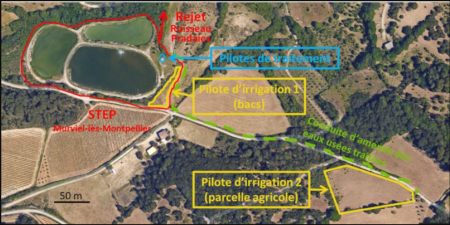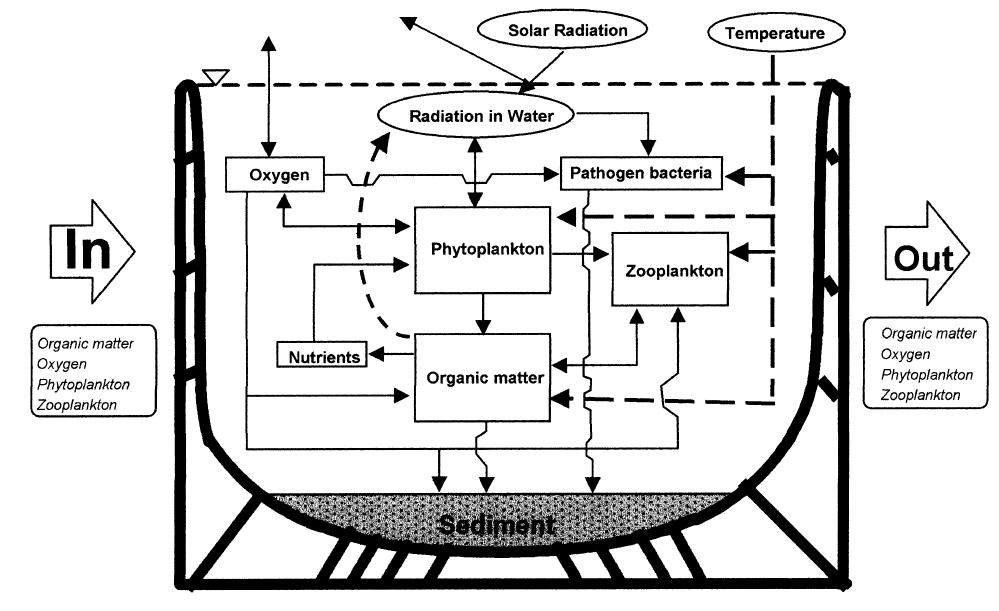 © Photo : Nassim Ait-Mouheb, INRAE
© Photo : Nassim Ait-Mouheb, INRAE
In water-deficient basins, farmers have implemented various agronomic and technical strategies to preserve water resources. In order to ensure the sustainability of wine production under Mediterranean conditions, several levers are currently being studied, and the exploitation of so-called 'alternative' water resources, such as Treated Waste Water (TWW), is proving to be a promising option to be developed.
However, although this resource is a source of nutrients for crops (Becerra et al. 2015), and limits direct discharges into receiving environments, its use raises many questions due to the risk linked to the microbiological quality of water used for irrigation and the possible presence of micropollutants (Ait-Mouheb et al. 2018).
 © illustration : Eran Friedler
© illustration : Eran Friedler
In addition, beyond the quality of the water resource leaving treatment plants, the temporal evolution of water quality in reservoirs filled entirely or partially with treated wastewater remains a question mark in the climatic conditions of the Mediterranean basin. In order to increase the resource and quality supplied by wastewater treatment plants, we are considering the creation of multi-resource reservoirs (mixtures of water from different sources). This mixture of waters is likely to represent a lever for controlling reservoir water quality.
In this context, three laboratories in the Occitanie region are proposing to carry out experimental monitoring and modeling of water quality in reservoirs containing treated wastewater. In particular, the Ph.D project aims to develop a model to predict the temporal evolution of water quality in a reservoir as a function of climatic conditions, hydraulic functioning and the quality of water sources.
This thesis is part of the SESQIA project (financed by the Occitanie Region/Hérault Department/Carnot Eau).
Key words: water reuse, reservoir, irrigation, water quality, modeling






